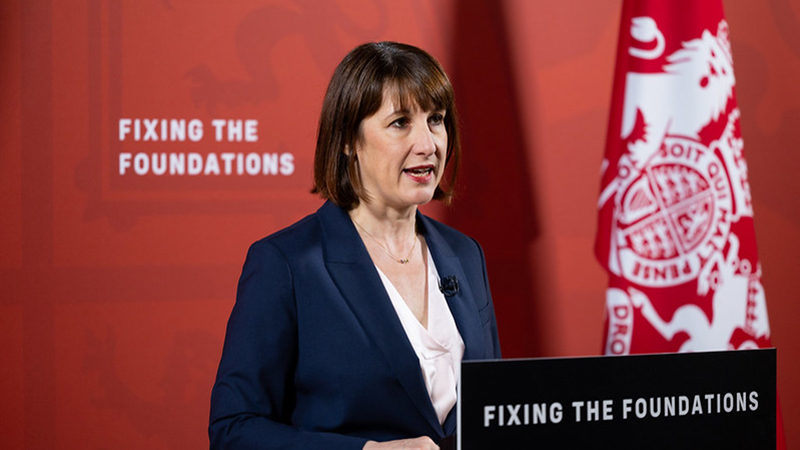Chancellor Rachel Reeves hinted at tax rises as she blasted the Conservative Party for a £20bn black hole in public finances, in a speech to the House of Commons.
In confirming the date of the new government’s first Budget, set for 30 October, the chancellor fired the starting gun on speculation around possible tax rises to fill the gap in the public purse.
AJ Bell personal finance director, Laura Suter, said the chancellor had signalled to the public that tax rises are extremely likely at the next budget.
However, with Labour insisting during the general election campaign they would not raise income tax, VAT, or National Insurance, Suter says its likely Reeves will look at alternative ways to raise money.
See also: FCA launches rule review to spot Consumer Duty ‘overlaps’
“Of course, it’s possible to increase taxes on income through the backdoor, which is precisely what we’ve seen in the past few years of frozen tax thresholds at a time of inflation and wage rises.
“That trend is almost certainly set to continue. The big question is where else the chancellor may turn in order to ratchet up the tax take even further.
“The inevitable pre-Budget speculation about possible tax rises can be unsettling for savers and investors, but given the lack of certainty, it’s usually best to ignore the noise, deal with the tax rules as you find them and focus on the long term.”
Myron Jobson, senior personal finance analyst at interactive investor, said investors should “strap themselves in for further twists and turns” in the personal finance landscape as the government pursues a new strategy to balance the books.
“It is increasingly clear that a cocktail of spending cuts and tax changes could be on the cards to get the UK economy back on an even keel,” he said. “Speculation over changes to capital gains tax, the pensions landscape, and Inheritance Tax is bound to heat up following the speech. As such, it is important for people to make as much use of current allowances as they can before any changes are made.”
See also: Abrdn: UK poised to lead global property sector recovery
Meanwhile Bethan Chant, tax specialist and solicitor at city law firm DMH Stallard, believes that rules on how assets are treated when they are transferred overseas will be under scrutiny.
She said: “While the content of the chancellor’s statement was fairly predictable, there was a substantial paper released yesterday announcing changes to the taxation of ‘non-doms’.
“This paper commits the government to continuing with the previous government’s planned removal of the lucrative remittance basis, with a four year foreign income and gains (FIG) regime starting from April 2025.
“This will allow full tax relief for the first four years of UK tax residence for arriving individuals, and a reduced rate after that. Certain trust income and gains however will no longer be protected from UK taxation in the hands of non-doms, and those deemed domiciled in the UK who don’t qualify for FIG treatment.
“It’s clear that trust taxation and how assets are treated when they are transferred overseas, are very much in the chancellor’s sights.”











